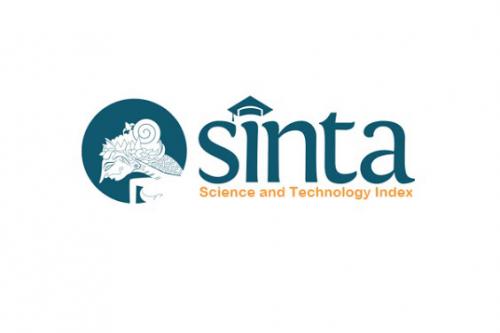Konstruksi Pengembangan Wakaf Saham Dalam Rangka Mengoptimalkan Potensi Wakaf Produktif di Indonesia
DOI:
https://doi.org/10.56874/islamiccircle.v1i1.98Keywords:
Waqf Share, Development Quality, Strengthening PolicyAbstract
Waqf has an important role for improving the quality of development, especially through improving social and economic dimensions. However, the management of waqf on average has not been able to be productively, so that its role for development is still not optimal. This is caused the suboptimal innovation and governance of waqf. The strategy to improve innovation in waqf governance is to create product diversification, one of which is stock waqf. However, the development of stock waqf is constrained by the lack of literature references so that the exploration of the potential and impact of stock waqf is still unknown. Therefore, the purpose of this study is to construct the development of stock waqf in order to optimize the potential of productive waqf in Indonesia. Based on the desk study approach analyzed through literature review, three discussion results can be drawn, namely: (i) the community still has a weak level of knowledge related to stock waqf, which is caused by socialization and literacy that are still low; (ii) the position of stock waqf in the constellation of Islamic financial ecosystem is still weak; and (iii) there are two models of implementing stock waqf that can be done, namely waqf that comes from the profits of stock investors, and waqf that makes Islamic stocks as an object of waqf. To construct the development of stock waqf, policy strengthening is needed, which includes the authorities of the Ministry of Finance, the Ministry of Religion, BWI, BI, and OJK.
References
Abdul Latif, S., Nik Din, N. M., & Mustapha, Z. (2018). The Role of Good Waqf Governance in Achieving Sustainable Development. Environment-Behaviour Proceedings Journal, 3(7). https://doi.org/10.21834/e-bpj.v3i7.1292
Ahmed, E. R. (2014). Islamic Sukuk : Pricing Mechanism and Rating Md . Aminul Islam Tariq Tawfeeq Yousif Alabdullah Contribution / Originality 2 . Concept of Sukuk Securities. Journal of Asian Scientific Research, 4(11)
Al-Sabbah, S. (2015). The Applications of Qualitative and Quantitative Research among Academic Staff in Psychology and Education: A Review of Practice. International Journal of Education and Research, 3(3)
Alim, M. N. (2015). Utilization and Accounting of Zakat for Productive Purposes in Indonesia: A Review. Procedia - Social and Behavioral Sciences, 211(September), 232–236. https://doi.org/10.1016/j.sbspro.2015.11.028
Antara, P. M., Musa, R., & Hassan, F. (2016). Bridging Islamic Financial Literacy and Halal Literacy: The Way Forward in Halal Ecosystem. Procedia Economics and Finance, 37(December), 196–202. https://doi.org/10.1016/s2212-5671(16)30113-7
Bayuni, E. M., & Srisusilawati, P. (2018). Kontribusi Instrumen Moneter Syariah Terhadap Pengendalian Inflasi Di Indonesia. Amwaluna: Jurnal Ekonomi Dan Keuangan Syariah, 2(1), 18–38. https://doi.org/10.29313/amwaluna.v2i1.3314
Derigs, U., & Marzban, S. (2008). Review and analysis of current Shariah-compliant equity screening practices. International Journal of Islamic and Middle Eastern Finance and Management, 1(4), 285–303. https://doi.org/10.1108/17538390810919600
Elasrag, H. (2017). Towards a New Role of the Institution of Waqf. SSRN Electronic Journal, 80513. https://doi.org/10.2139/ssrn.3011290
Fatwa MUI tanggal 11 Mei 2002 tentang Wakaf Uang
Fatwa MUI Nomor 80 Tahun 2011 tentang Penerapan Prinsip Syariah dalam Mekanisme Perdagangan Efek Bersifat Ekuitas di Pasar Reguler Bursa Efek
Fitri, R., & Wilantoro, H. P. (2018). Analisis Prioritas Solusi Permasalahan Pengelolaan Wakaf Produktif (Studi Kasus Kabupaten Banjarnegara). Al-Muzara’ah, 6(1), 41–59. https://doi.org/10.29244/jam.6.1
Hamza, H. (2013). Sharia governance in Islamic banks: effectiveness and supervision model. International Journal of Islamic and Middle Eastern Finance and Management, 6(3), 226–237. https://doi.org/10.1108/IMEFM-02-2013-0021
Hanna, S. (2015). Wakaf Saham dalam Perspektif Islam. Mirzan Jurnal Ilmu Syariah, 3 no.1 Jun(1), 99–124. file:///C:/Users/DELL/Downloads/Wakaf_Saham_Dalam_Perspektif_Hukum_Islam.pdf
Hasan, Z. A., Othman, A., Ibrahim, K., Md Shah, M. A. M., & Noor, A. H. M. (2015). Management of Waqf Assets in Malaysia. International Journal of Nusantara Islam, 1(2), 59–68. https://doi.org/10.15575/ijni.v3i1.412
Hashim, F., Mahadi, N. D., & Amran, A. (2015). Corporate Governance and Sustainability Practices in Islamic Financial Institutions: The Role of Country of Origin. Procedia Economics and Finance, 31(15), 36–43. https://doi.org/10.1016/s2212-5671(15)01129-6
Hazami, B. (2016). Peran dan Aplikasi Wakaf dalam Mewujudkan Kesejahteraan Umat di Indonesia. Analisis, XVI(1)
Iman, A. H. M., & Mohammad, M. T. S. H. (2017). Waqf as a framework for entrepreneurship. Humanomics, 33(4), 419–440. https://doi.org/10.1108/H-01-2017-0015
Kadarismanto. (2014). Rekonstruksi wakaf dalam perspektif hukum berbasis nilai keadilan. Pembaharuan Hukum, I(3)
Kashif, M., Faisal Jamal, K., & Abdur Rehman, M. (2018). The dynamics of Zakat donation experience among Muslims: a phenomenological inquiry. Journal of Islamic Accounting and Business Research, 9(1), 45–58. https://doi.org/10.1108/JIABR-01-2016-0006
Maspupah, I., & Hasanah, S. M. (2016). Penguatan Filantropi Islam melalui Optimalisasi Wakaf Berbasis Sukuk. Journal of Islamic Economics Lariba, 2(2)
Mohsin, M. I. A. (2012). Waqf-shares: New product to finance old waqf properties. Banks and Bank Systems, 7(2)
Muntaqo, F. (2015). Problems and Prospects of Productive Waqf in Indonesia. Al-Ahkam, 1(25), 83. https://doi.org/10.21580/ahkam.2015.1.25.195
Nakano, D., & Muniz, J. (2018). Writing the literature review for empirical papers. Producao, 28. https://doi.org/10.1590/0103-6513.20170086
Nomran, N. M. (2019). A systematic literature review on Shari ’ ah governance mechanism and firm performance in Islamic banking. https://doi.org/10.1108/IES-06-2019-0013
Nurhidayani, Yasin, M., & Busaini. (2017). Pengelolaan dan Pemanfaatan Wakaf Tanah dan Bangunan. Maqdis: Jurnal Kajian Ekonomi Islam, 2(2), 163–175.
OJK. (2017). Roadmap Pengembangan Keuangan Syariah 2017-2019. Otoritas Jasa Keuangan, 1–82. https://www.ojk.go.id/id/kanal/syariah/berita-dan-kegiatan/publikasi/Documents/Pages/Roadmap-Pengembangan-Keuangan-Syariah-Indonesia-2017-2019/Roadmap 2017-2019(1).pdf
Peraturan BWI (Badan Wakaf Indonesia) Nomor 1 Tahun 2009 tentang Pedoman Pengelolaan dan Pengembangan Harta Benda Wakaf Berupa Uang
Peraturan Menteri Agama Nomor 4 Tahun 2009 tentang Administrasi Pendaftaran Wakaf Uang
Peraturan Menteri Agama Nomor 73 Tahun 2013 tentang Tata Cara Perwakafan Benda Tidak Bergerak dan Benda Berak Selain Uang
Pitchay, A. A., Meera, A. K. M., & Saleem, M. Y. (2015). Factors influencing the behavioral intentions of muslim employees to contribute to cash-waqf through salary deductions. Journal of King Abdulaziz University, Islamic Economics, 28(1), 63–100. https://doi.org/10.4197/Islec.28-1.3
Prasetyo, A. (2019). Wakaf Saham dalam Meningkatkan Investasi Saham Syariah di Indonesia. Majalah Ekonomi, 24(2)
Rachman, M. A. (2019). Halal Industry in Indonesia: Role of Sharia Financial Institutions in Driving Industrial and Halal Ecosystem. Al-Iqtishad: Jurnal Ilmu Ekonomi Syariah, 11(1), 35–58. https://doi.org/10.15408/aiq.v11i1.10221
Saepudin, E., & Surya, E. (2017). Productivity Model of Work. 18











